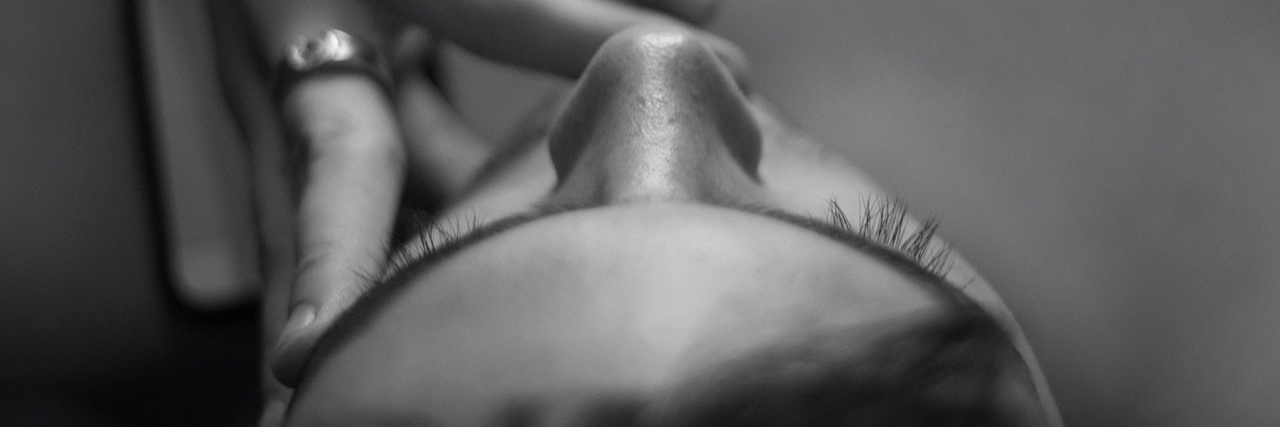Some people search for love. Others money. Some spend their lives in search of fame, or glory. But not me. There’s only one thing I’m after, and that’s the Big D.
Dopamine.
I’ve written previously about the positive sides of having ADHD (attention deficit hyperactivity disorder): as a student at Cambridge University, a highly competitive academic environment, it felt useful to me to weaponize my disability, painting it in a positive light in order re-shape how not only others saw me, but how I saw myself.
Other relevant stories:
• PMDD and ADHD
• Can You Have ADHD and Depression?
• Do I Have ADHD or Am I Just Lazy?
• What is ADHD?
In reality, however, it is a condition that is often debilitating. And this debilitation, as a high achiever, has led me to feelings of personal shame. For me, the downside of ADHD lies beneath the surface of how I present my neurodiversity to others. My zappy, brain-tingily, fast-thinking, wisecracking, confidently chaotic exterior is only one side of the ADHD pendulum. The other, is far less zany. Rooted in feelings of emptiness and frustration, the relentless search for dopamine can take a toll.
For those of you who don’t know, dopamine is a neurotransmitter most commonly referred to as the “feel good” hormone. High dopamine levels lead to increased memory function, motivation and pleasure — specifically in the reward center of the brain. It’s the naturally occurring espresso shot of the human body. Unfortunately, a characteristic of ADHD often means that dopamine is in much shorter supply than in a neurotypical brain.
Low dopamine levels lead to feeling tired, unmotivated, and unhappy. They can also lead to low libido, mood swings, trouble sleeping, difficulty concentrating, and general feelings of lackluster, inadequacy, and low mood. This can lead to obsessive behaviors in search of it: e.g. viewing coffee as not only helpful addition to a day, but a necessity; seeking out abnormal levels of human interaction in order to stave of the boredom of being alone; socially inappropriate acts of risk taking; and a hunger to be always in a stimulating environment.
ADHD-ers tend to be drawn towards high-paced, high-pressure job environments: being an emergency responder, working in hospitality, becoming a teacher, an athlete or (surprise, surprise) a journalist, for example. To boost low dopamine levels constant stimulation is necessary, be it social, physical, mental or emotional. However, there’s only so much literal pleasure seeking you can pack into a day before an inevitable lull arrives. The constant hunt to drum up this hormone is all-consuming and eventually, no matter what you do, neurodiverse individuals often fall into personal pits. I like to call this, “The Slump.”
The Slump is all-consuming. Me and The Slump have a complicated relationship, verging on one sided. It has most of the control over me, I almost none over it.
Now that I know that dopamine deficiency is a necessary evil that comes along with my ADHD, I find it easier to manage, but before diagnosis it is something that made me question my very self. As an individual who built their personal brand on a “can-do attitude” and aversion to failure, it felt like a betrayal to have these deep periods of extreme torpor characterized by a distinct lack of joy.
The low libido element of decreased dopamine can also be incredibly debilitating. For many years, I assumed I was a-sexual. During The Slump, I experience an extremely low sex drive, something that made me feel abnormal and insufficient as a young woman for many years. And to some extent, still does.
Socially, the search for dopamine can also often bring an otherwise well-flowing conversation to an uncomfortable halt. The need for excitement can lead to word-vomit. Intent on getting a laugh, risqué jokes often fall flat. Spontaneous suggestion, such as “Let’s throw our pints in the river. Let’s throw ourselves in the river,” seem manic and bizarre to an innocent neurotypical. Random impulses mean it’s hard to keep thoughts locked safely away; instant reactions — “I fancy you,” “That jumper’s horrible,” “I never liked her at all” — often tumble freely from regretful lips.
Although I’ve been offered medication, which promises to scientifically “fix” my dopamine deficiency, I don’t want it. Perhaps I’m a stubborn mule, a neurodivergent-martyr. A Christ-like figure, intent on having my “feel-gooded-ness” sporadically sacrificed at the altar of The Slump.
But I think for me, the only true way to get a handle on The Slump is by embracing it. By letting it win. As much as I try, not every day can be the sensation I so badly want it to be. Not every conversation can galvanize me to divine inspiration. Not every moment can bring me to new heights. They can’t, and they shouldn’t. The Slump is part of me, and as soon as I can get on board with that I can start to work within its confines, instead of railing against them.
Photo by Ajay Karpur on Unsplash

